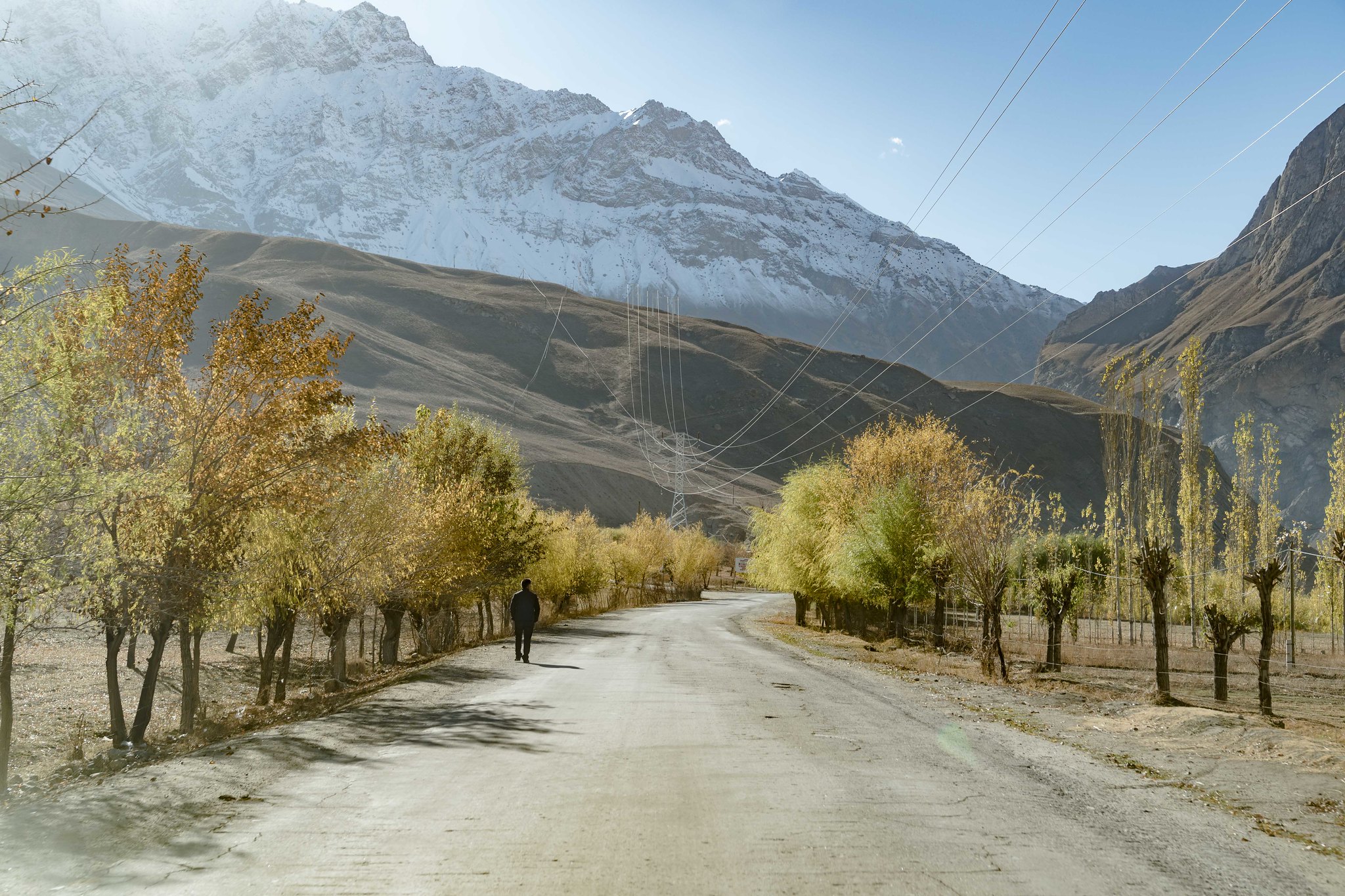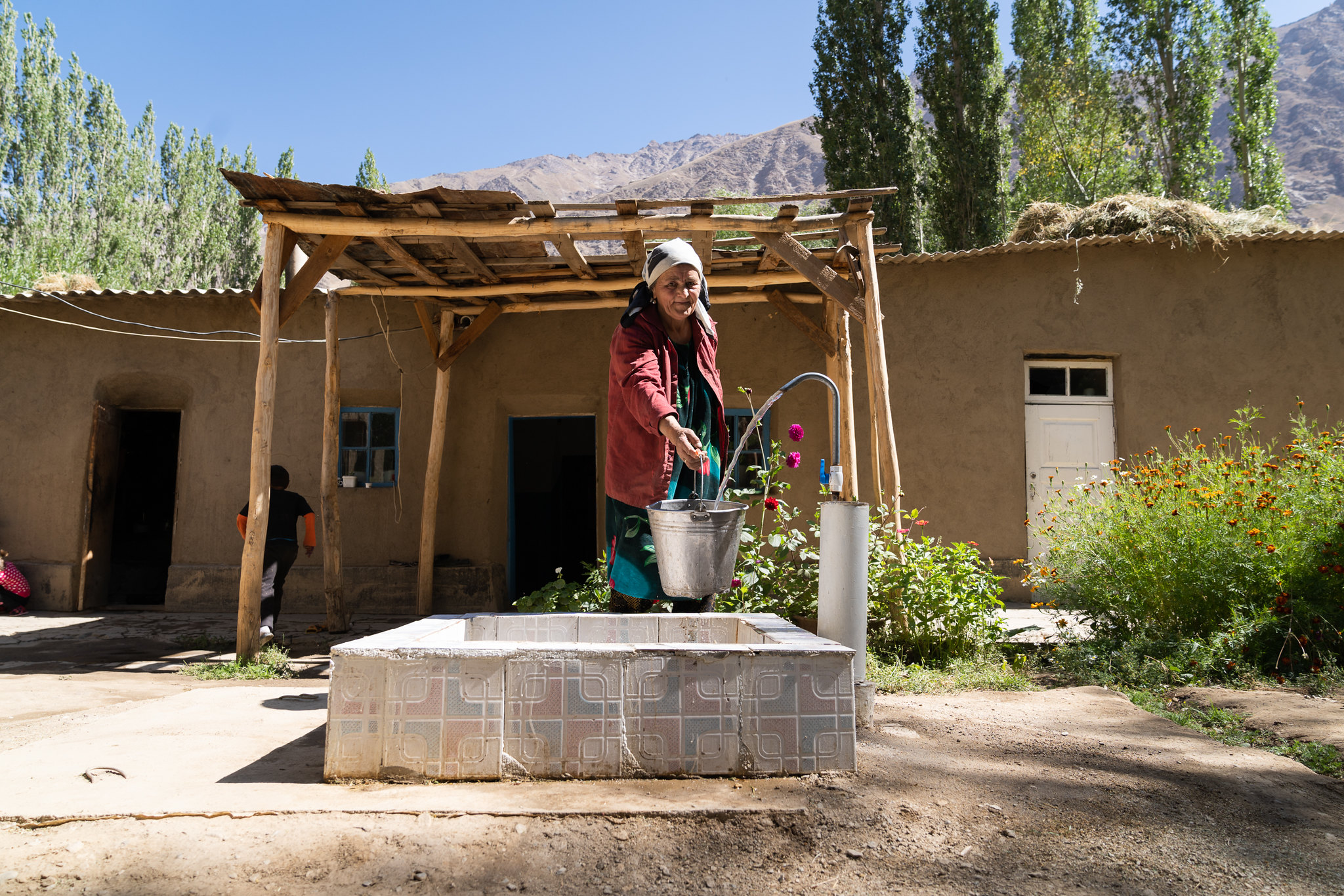In the remote mountainous villages of northern Tajikistan, clean water can be hard to come by. In the sub-district of Khistevarz, which is home to more than 60,000 people, securing clean water is an expensive business that has taken its toll on people’s health and on their relationships with regional neighbours. However, with funding from the Government of Germany and support from the Aga Khan Foundation (AKF), local communities recently celebrated the opening of two drinking water supply systems that not only bring clean water but also the promise of a healthier and more stable future.
For more than 20 years, the village of Havzaki Poyon in Khistervarz experienced a severe shortage of drinking water. During that time, the community had to buy water from neighbouring towns and store it in containers. Not only was this expensive but the drinking water would sit stagnant in containers for extended periods, creating numerous health risks. Transporting water this way was also the cause of tremendous hardships:
“Since many men in our community have to migrate for work, most of the difficulties are faced by women and children. I remember it was cold in winter; our hands trembled, and everyone carried water with buckets for long distances.”
Mrs. Azizova Mavjuda, Head of the Mahalla Committee in Havzaki Poyon
In some cases, even purchasing the water containers was a challenge. Khistervarz lies downstream from Kyrgyzstan and most nearby sources of drinking and irrigation water are located in Kyrgyz territory, meaning that tensions would often arise between Tajik and Kyrgyz communities who were both in need of clean water. The Tajiks often lost out.

As part of its health and nutrition programme, AKF works with communities to access clean drinking water through sustainable and local supply systems. For many of the communities we work with in Central Asia this is of critical importance because of the fragile mountain environments they live in. In Tajikistan, climate change is impacting water availability, so constructing and rehabilitating water supply systems is increasingly vital.
Through a collaborative effort between AKF, the private sector, the local community and with funding from the Government of Germany, the village of Havzaki Poyon has developed two new sources of clean water: a gravity flow water supply system from the nearby Khoja Bokirgan Lake and a series of drinking water wells. The gravity flow system is more reliable and cost effective than a traditional pump system, as no external power is needed to maintain the flow.
As part of AKF’s community-led development approach, the local Mahalla (or village) Committee co-invested into the project ensuring local ownership and long-term sustainability of the infrastructure. The community is working with two local companies to ensure a sustainable supply of clean water long into the future.

The new sources of water have had a huge impact on life in Havzaki Poyon. Over 2,000 people now have drinking water taps in their homes and pay an affordable price for the supply – around 90 TJS (Tajikistan somoni) per 30 cubic metres of water. For comparison, community members used to pay 750 TJS for the same amount of water in containers carried far from their homes. The money that each household is saving can now be invested elsewhere:
“Now, we use the money that we spent for purchasing water for the well-being of the family – medicines, and education of our children. Now our community has the source of life, joy and well-being. Those who suffered from the lack of water truly appreciate every drop of it.”
Mrs. Azizova Mavjuda, Head of the Mahalla Committee in Havzaki Poyon

With thanks to the German Federal Foreign Office for its generous support of AKF’s programmes.
This article was written by Firuzai Muzaffar (Communications Officer, AKF Tajikistan) and Kerensa Keevill (Digital Content and Communications Officer, AKF UK), with support from Mehrafruz Jonmamadova (Manager of Resource Mobilisation and Communication, AKF Tajikistan).





